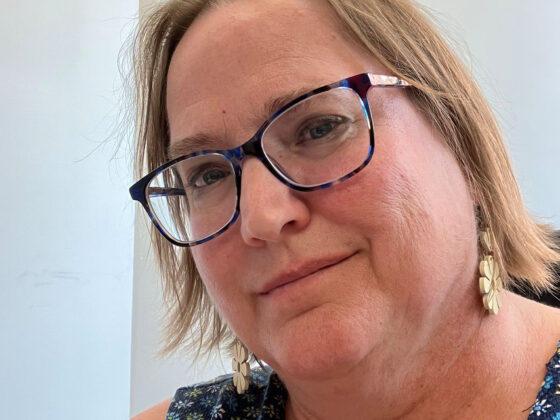We all swim against time and the riptides of our genetics, lifestyle, and environment. Any one of these variables, and indeed any combination, can drag us out to sea. It can be a struggle, particularly when it comes to the activities we engage in that help maintain our independence. However, no matter how old we become, we want to believe that we have some years to go before we lose our ability to perform the activities that matter to us. Time is on our side until it isn’t. But, then, we must face that our bodies and minds aren’t as robust and resilient as they once were as we strive to perform the activities that add value to our lives.
I remember when I gave up martial arts training. The dojo had become my tribe, my “Cheers,” a place where everyone knew my name. Training improved my discipline and helped me stay physically and mentally sharp. I saw myself as a martial artist. But eventually, the stubborn aches and pains that never quite healed, and the perpetual stiffness that lingered after the previous day’s training, ultimately tipped the scales against any sense of accomplishment I derived from my practice. With reluctance, I hung up my gi.
“Well, duh!” I can hear you saying. “This first-world problem should be a no-brainer for someone entering their sixties.” However, sometimes the activities we need to reconsider are less obvious yet are nevertheless essential to our identity and sense of independence. Driving is one of those activities.
Since our high school days, driving has been synonymous with freedom and independence. It grants us the autonomy to come and go without relying on others for transportation. But we also assume an enormous responsibility for our selves and especially others when we’re behind the wheel. Imagine the damage we can cause if we lose control of a two-ton vehicle. Yet we view driving as an inalienable right when in reality, it’s a privilege that our government regulates to mitigate the potential harm we might cause to ourselves, property, and others. But many of us cannot imagine a future when we might have to relinquish this privilege.
For my 95-year-old mom, driving has been a part of her life for many decades. In her 70s and 80s, she ran errands for herself and picked up and dropped off our children at their nursery, elementary, and middle schools. In addition, she made it possible for our boys to attend extracurricular activities when my wife and I couldn’t get home in time.
Having lived in the Buckeye State for many years, my mother drove from Detroit to Cleveland twice a year to visit my sister. She was 90 years old when she made her last trip there. Some friends were shocked when I shared that my mother had driven herself to Ohio.
“You still let her drive?” they asked in tones dripping with disapproval. To them, it was inconceivable and foolish to allow someone of her years to get behind the wheel and drive for three hours alone.
Their comment had me second-guessing myself. My mother had been in only one accident in the last 25 years and that was because the other driver had run a red light. Still, maybe I shouldn’t let her drive long distances anymore, but short trips around our community might be okay, right? Then again, who was I to tell my mother, a grown woman with all of her faculties intact, that I was going to take away her keys? Was it because of her age?
People often refer to my mom as “spry,” a term for energetic elders who don’t fit the stereotype of how a ninety-something-year-old should act. My mother loves to debate politics and attend concerts. She enjoys reading and watching news pundits on TV. My mom even honed her air hockey skills so that she could best my youngest son. So, I’ve never thought of her as old in a “vulnerable” sense, at least not until recently when the first shoe dropped. It was nighttime, and I was out of town when I got a call from my wife.
“I hope you’re sitting down. Your mom hasn’t come home.” She’d gotten turned around on one of the highways and headed north instead of south. My mother always planned her errands to begin and end during the daylight hours because she didn’t see well enough to drive at night. We worried that the worse had happened. Wherever she was, my mother couldn’t return home in the dark, even if she knew the way. Fortunately, she had a fully charged flip phone. She stopped at a convenience store and called. A kind stranger also helped, and between the three of them, they figured out that my mother was an hour from where we lived so my wife could pick her up.
Getting disoriented can happen to anyone, I told myself. I’ve gotten lost before, but the added variable of my mom’s advanced age had me wondering. Memories of my father’s battle with dementia surfaced. He used to forget to turn off the oven’s gas burners. He also got lost for several hours, not returning until midnight when a good Samaritan helped him find his way home. Dementia eventually killed dad.
Perhaps this is the beginning of the…I thought but stopped myself. Articulating the last word might make it prophetic.
Instead, I searched for signs of decline. How was Mom’s gait? Was she sleeping longer than usual? How was her speech? Was she easily confused or more forgetful than usual? I worried my lack of vigilance might lead to something more disastrous than getting lost.
I suggested allowing my wife or me to run her errands or drive her wherever she might need to go. My mom greeted my advice with an emphatic “hmph” and silence.
A debate waged warred inside of me. I wanted to honor and respect my mother’s self-agency, but what if she harmed herself or others while driving? Was I overreacting? I needed evidence or data that showed she shouldn’t drive anymore. But I didn’t have that, so I continued to observe.
Days turned into weeks, and I could discern no meaningful changes. She appeared fine, and I relaxed a bit (or stuck my head in the sand, depending on one’s views of these things). My mother continued to drive, and she didn’t get lost. Maybe time was still on her side, but then, the second shoe dropped.
My mom prides herself on never complaining about her ailments. So when she said that she sometimes got dizzy and had difficulty catching her breath, mine stuck in my throat. We went to the hospital. After more than 16 hours in the emergency room and thousands of dollars worth of tests and scans, they admitted her.
The medical team diagnosed atrial fibrillation and congestive heart failure. Either one could cause the other, but the doctors weren’t sure which condition occurred first. With her heart working overtime, she was out of breath, sometimes close to fainting. Her condition might also be the cause of her confusion when she got lost.
The medical team stabilized my mother and discharged her with instructions for multiple prescriptions and supplements she’d need to take for the rest of her life. She didn’t like the sound of that, being told what she would have to do for her remaining years. But before we left, she asked the doctor one last question. Could she continue driving?
The doctor’s eyes widened before looking at me. “Say ‘no,’ Doc!” I screamed in my head wishing she could read my mind. I was worried that new issues might surface even with her new meds. But the doctor left the decision up to my mom.
“If you feel okay and aren’t dizzy, I don’t see any reason at this time to say that you shouldn’t.” My mom sat back in the hospital bed with her cat-who-ate-the-canary smile. Her independence had been reaffirmed.
While her age should not be the issue, her mental and physical health changes can be. When I turned 40, my night vision changed. No one told me to stop driving because I’d turned 40, but I did begin wearing prescription glasses. Our physical and brain health often worsens over time, even with treatment. For example, my father, who was in his 70s when he was diagnosed, had clear cognitive decline, making him an unsafe driver and a danger to others. We were fortunate with him because he never caused an accident or hurt anyone. In my mom’s case, her new prescriptions would reduce the fluid around her organs and make it easier for her heart to pump oxygenated blood to her brain. In other words, her new meds would help control her dizziness and confusion. Knowing this helped me understand the doctor’s guidance, but I still had my reservations.
As an adult child of an older parent who drives, your familial genes incline you to protect your mother or father from harm whether they ask for your help or not. Our easy acceptance of ageism often justifies taking an aged parent’s car keys. Better safe than sorry. If I were working in a different field, I’m sure that I would make that same call despite the doctor’s guidance. But because I work with older people, I want something different for my mom — to live with her dignity and self-agency intact.
Losing driving privileges is a complex and emotional experience for anyone, regardless their age. It impacts our independence and self-esteem when we must rely on others to do things for us. So it is vital to approach the situation with sensitivity and empathy, to have honest and open discussions, and to talk about the risks. We should also seek out alternatives and brainstorm options with our elders that preserve their independence while keeping them safe.
The waves of time pummel us all. When we’re young, we feel like we can swim forever. But time never tires or gives you a break. Somedays, you can only tread water just enough to keep your head above its surface. During these moments, adult children of older parents must be prepared to help mom or dad stay afloat. In the end, they will appreciate our support. We must remain vigilant, be ready to help when needed, and never let them swim alone.




Nice article but who is the author?